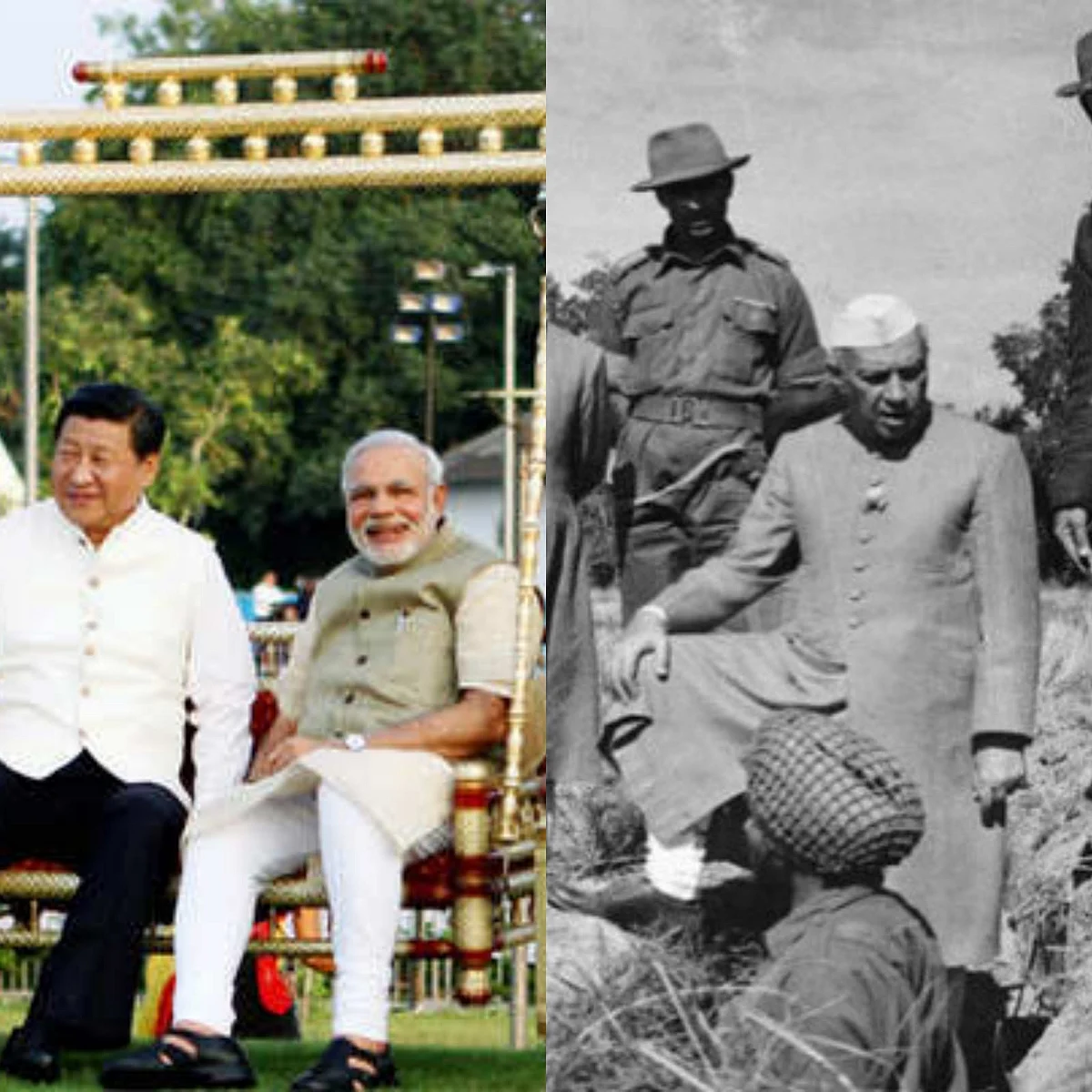From Nehru to Modi, a story of courage and cowardice
We are no longer the resource-starved newly-formed nation we were in 1962. And hence Modi’s dithering in taking on China is remarkable for its lack of courage and patriotism

As a student in Paris, halfway through my mid-career course in journalism, I discovered Dien Bien Phu. On my way to and from the Citè Universitè where I lived at the Maison de l'Inde, I was curious about the long queues snaking across the commercial area at the underground Metro station that clearly were not for tickets to travel.
In fact, there were multiplexes within the Metro station and the French were growing crazy about two movies showing there, both set in Indo-China—L'Amant and Dien Bien Phu.
The first was the semi-autobiographical story of a French teenager and her rich Chinese businessman lover that was running to packed houses. But it was the second, about the 57-day siege of the French headquarters in Indo‐China, located in Vietnam, that was really breaking the box office.
I eventually joined the queues and saw both. The first was poignant enough but it was Dien Bien Phu, a name I had never heard before, that was unforgettable and stayed in my mind for years afterwards.
The French had been occupying Vietnam, Cambodia and Laos since the 1930s and, in 1954, after the battle of Dien Bien Phu, they were compelled to leave the region in a hurry.
While the film about the evacuation of the French troops and civilians through the eyes of an American journalist was fascinating and memorable enough, what proved a bigger takeaway was how the tiny and plucky Vietnam defeated not one but two mighty empires—the French and the Americans nearly 20 years later.
For soon after the French exit, Americans invaded Vietnam in a bid to prevent the spread of communism in Indo-China. They occupied all the Indo-China nations, threw in much resources, sacrificed the lives of thousands of soldiers in a futile war, and ultimately had to exit as ignominiously as the French, without any decisive victory in the region.
So, when India’s external affairs minister S. Jaishankar said we cannot take on China because it is a bigger nation than ours, I simply wanted to laugh. That statement told me two things: the red-eyed man with the enormously inflated chest is actually only a bully and, like all bullies, ultimately a coward.
And, second, how courageous and devoted to the nation Pandit Jawaharlal Nehru really was. He wanted peace with China. Hindi-Cheeni bhai-bhai and the principle of Panchasheel in our foreign policy with China were after all his formulations.
Yet, when China abandoned all pretence of friendship and pushed back our forces in Ladakh—as it is doing even today—Nehru did not hesitate even for a second to go to war with the big neighbour.
We were in a nascent stage of development and quite on our own as both the US and the UK refused to supply us arms any longer. We did not even have the Soviets on our side at the time, though this war pushed India into the arms of the USSR and eventually brought us aircraft, warships and other Soviet-manufactured weaponry for future use.
Today, the Narendra Modi government, with the benefit of Nehru’s policies, has a proclaimed friendship with Russia and is supporting that nation in its war with the tiny and equally plucky Ukraine who has fought on bravely for a year all of Russia’s air and naval power as well.
And we, who proclaim ourselves as a mighty nation, do not have the courage to push back China even on just our land that they grabbed illegally?
India’s war with China in 1962, born out of a betrayal of our hand of friendship, compelled China to recede behind the McMohan Line and return our territory to original position. To me, that looks like a victory. But to regain our territory we had to have the courage to show China its place, and the Dragon did not dare to violate the LAC (Line of Actual Control) for decades after that.
Modi professes a great love for China, even giving a swing ride to Chinese president Xi Jinping. So what China is doing now at our borders in Ladakh and Arunachal Pradesh is nothing short of the kind of betrayal of friendship that happened during Nehru’s era?
What it tells me is that the Chinese do not value the hand of friendship and do not understand peaceful co-existence. They cannot be trusted with such overtures alone.
I have relatives in the army posted over both borders over the years who have told me that while, on occasion, Indian and
Pakistani soldiers might make friendly overtures to each other and even share the occasional drink and chicken tandoori over dinner, the Chinese will not blink no matter how much you smile at them or try to shake hands.
Then, again, except for quelling rebellions across its neighbouring territories, like the Tibet or Taiwan, and in strategic alliances in places like Korea and Vietnam, China has always had to call a ceasefire or withdraw. The only war it had one on one was with India, and India at the time was a young nation with undeveloped skills both in terms of military prowess and statecraft.
We are no longer the new kid on the block and the fear of taking on China is remarkable for its lack of courage and patriotism. It confirms to me that this regime is nothing but a bully boy— picking on its own citizens in weaker positions than them but running away from confronting the real men. Like Georgie-porgy in the famous nursery rhyme.
Follow us on: Facebook, Twitter, Google News, Instagram
Join our official telegram channel (@nationalherald) and stay updated with the latest headlines
